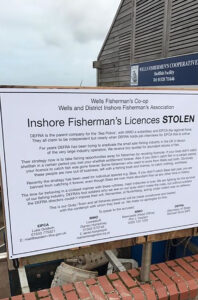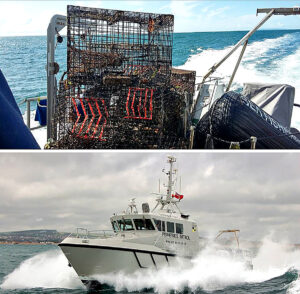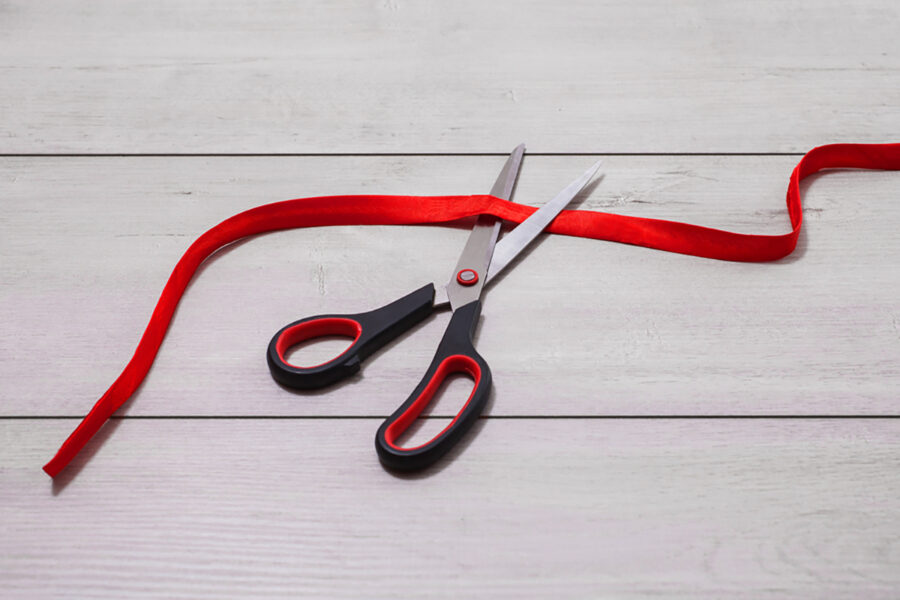English under-10s struggle to earn a living. Tough controls and loss of grounds threaten future.
A mounting regulatory burden and heavy-handed enforcement are threatening the inshore fleet in England, reports Tim Oliver.
Fishermen say the increasing amount of regulation and licence restrictions imposed on them by IFCAs and the MMO, plus lack of quotas, loss of grounds to MPAs, windfarms, cable laying, dredging and other restrictions are making it impossible to make a living.
They say IFCAs and the MMO enforce regulations rigorously, with no margins for genuine mistakes, and there is no trust and a lack of communication between IFCAs and the industry.
Regular posts on the Fishing News Facebook page and conversations with fishermen attest to the frustration and anger they feel over the way the inshore industry is managed.
Few young men are entering the industry and there are fears of long-term decline as the average age of fishermen increases – despite the new era Brexit promises. The problems are particularly acute in the South and South East.

Fishermen at Wells-next-the-Sea in Norfolk have forcibly expressed their alienation from the fisheries authorities in this hard-hitting notice.
One young inshore fisherman, Pete Williams of Emsworth near Portsmouth, said he is finding it so impossible to fish viably that he has put his under-10m boat, Sarah C, up for sale. He said he knows of five fishermen who have left the industry this year and last year, and of another five who are likely to do so this or next year.
He told Fishing News that the endless restrictions and loss of fisheries year-after-year were destroying the versatility the inshore fleet needs to survive.
He was particularly critical of the Sussex IFCA, which he accused of treating fishermen with ‘complete contempt’. He has lodged a formal complaint against it over its recent confiscation of cuttle traps.
“They’re boarding us, checking us, searching us and posting it all over social media as soon as a fisherman is fined or warned. They’re treating us like millionaire criminals, when actually we’re all struggling and on the verge of going under because of all the draconian, stupid regulations that have come in over the past few years,” he told Fishing News.
“They’re talking about bringing in a netting permit next year, so not only will we be regulated by the CFP, quotas, minimum mesh and landing sizes, and conservation areas, but we’ll be managed by the amount of netting gear we use in the IFCA areas. People are going to go bust.
“All the fish markets are struggling in the South and South East, most of the inshore fleet and co-ops are struggling, and the IFCAs are just fining people left, right and centre and dealing with us in a very heavy-handed way.”
Safety threat
He said the IFCAs did not understand the practical realities of fishing and ‘how close to the wire we’re being forced to sail to make a living. They think if they close an area, we can just go somewhere else, but the reality is it’s making it more and more unsafe for small vessels to work because we’re being pushed out of sheltered waters.’
He said fishermen all along the coast chat to each other and they are all ‘sick to death of the way we’re being treated’. “They’re making me ill and affecting my family life, my wife and daughter because we’re having to live this nightmare.”
Eric McLeod who runs shellfish merchants Viviers UK, based in Portsmouth and Billingsgate, has regular contact with inshore fishermen from throughout the region. He said the way fishermen are being treated is ‘terrible’ and needs involvement from the top level in DEFRA, the MMO and the fisheries management establishment.
“What Pete Williams says is true – you can hear the same views from all the established, experienced fishermen,” he told Fishing News.
“We’re losing fishing grounds to MCAs, MPAs, windfarms, cables – they’re even telling you what hours you can fish,” he said.
The IFCAs, he said, were run by academics and other people with no knowledge or experience of the fishing industry – hardly anyone from the fishing industry is on their committees and fishery officers now call themselves ‘enforcement officers’.
“It’s unacceptable to the fishing industry, and the way it’s going, it’s on its way out. When I came ashore in 1985, there were 30,000 fishermen – it’s down to 10,200 now, maximum.”
The number of boats has fallen to 6000 – a reduction of 28% since 1996, according to UK Fisheries Statistics.
“Dozens of boats are on the market and they’re not selling. There are very few young people entering the industry and doing their courses. It’s terrible what’s going on and the government needs to know.”
Tim Dapling, chief executive of the Sussex IFCA, said he could not comment specifically on Pete Williams’ case as it was the subject of a formal complaint. But he said he did not recognise the overall relationship between fishermen, and rejected claims that the IFCA is heavy-handed and does not communicate with fishermen.
“I completely refute these comments, they don’t reflect the situation here or the feedback we get from fishermen,” he told Fishing News.
“Fishery officers have regular contact with fishermen and the IFCA receives positive feedback from fishermen on the shellfish permit, which provides a lot of detailed info on how the scheme is working and receives considerable support.
“I can’t comment specifically on these remarks but more generally, perhaps, there is a need to look at the broader context rather than isolated comments.”
IFCA under fire in official complaint
A fisherman from the Solent has slammed his local IFCA over what he says is heavy-handed action over the removal of his cuttle traps from Chichester Harbour at the beginning of September.

Pete Williams was unaware his traps had been lifted until he saw the Sussex IFCA post on Facebook.
Pete Williams, who operates the Sarah C SE 121 from Emsworth in the Solent, has told the Sussex IFCA in a formal complaint letter that he is ‘seriously not happy’ about the way the IFCA has behaved. He said he had no communication from the IFCA about the removal of the traps and only found out about it from a post the IFCA put on Facebook. He accused the IFCA of publicly flaunting what it appeared to regard as an ‘achievement’.
The traps were removed because some of the identification tags had come off the traps.
“I do not find this good practice. I hold a shellfish permit, and I comply with your regulations,” he told the IFCA.
He said he had placed the traps to allow the cuttlefish eggs to come off. The buoy was clearly labelled/marked and each trap had a tag on. He had not lifted them as he wanted the eggs to hatch. He could see the traps were still in position and had no need to lift them.
“Should we stuff the environment and pressure wash the eggs off?” he asked.
The pen on the buff had probably come off because he had to lay it in 3ft of water to comply with harbour authority arrangements to avoid navigational issues. This meant the buff rubbed on the sand every time the tide went out.
The missing tags had probably come off because of bad weather, but 50% of the traps had tags on when they were hauled. “You could clearly see that they were my traps and they made no effort to contact me to fix this problem.”
He said if the IFCA had phoned him to say some of the tags had come off he would have replaced them, or advised them that they would be removed entirely by the end of the week. He had only used 16 traps since June, to be sustainable, and the IFCA had lost 25% of them when they lifted them.
The traps have been taken to a distant ‘secure location’ and because he does not have a vehicle suitable for transporting them, he has now lost his entire cuttle fishery.
He said the IFCA had ‘yet again’ adopted a ‘heavy-handed approach, with a lack of respect, care or consideration for a licensed fishing operation and business in this area’.
“It has caused me unnecessary stress and I am financially out of pocket. This issue could have been resolved very easily, and quickly, instead you have taken my traps, not alerted me and left me in a predicament where I cannot access the cuttle fishery next year,” he told the IFCA.
He has asked for his pots to be returned, along with back rope, anchors and weights, to the location from where they had been removed, and compensation for the lost pots. He had been intending to use the back ropes for prawn pots so was now suffering loss of earnings.
He accepted the traps had to be tagged, and he could have done this if the IFCA had contacted him.
NFFO chief executive Barrie Deas, who was copied in on Pete Williams’ complaint letter to the Sussex IFCA, said rules have to be enforced but enforcement should be done ‘in a reasonable, balanced, proportionate way’.
He said there was a concern that things seemed to escalate very rapidly and that in Pete Williams’ case a phone call or a warning would have been appropriate.
“There may be a manpower issue – I’m not talking about IFCAs specifically,” he said. “At one time there was somebody on the coast fishermen could talk to who would have understood the fishing patterns, and I think we’ve lost something there.
“The first stop shouldn’t be heavy-handed action, it should be dialogue. If there are problems, they should be resolved before things escalate. The way to achieve that is to have dialogue. Penalties should be the last resort not the first resort.”
Tim Dapling, chief executive of the Sussex IFCA, said he could not discuss the case because it was the subject of a formal complaint.
Read more from Fishing News here.








